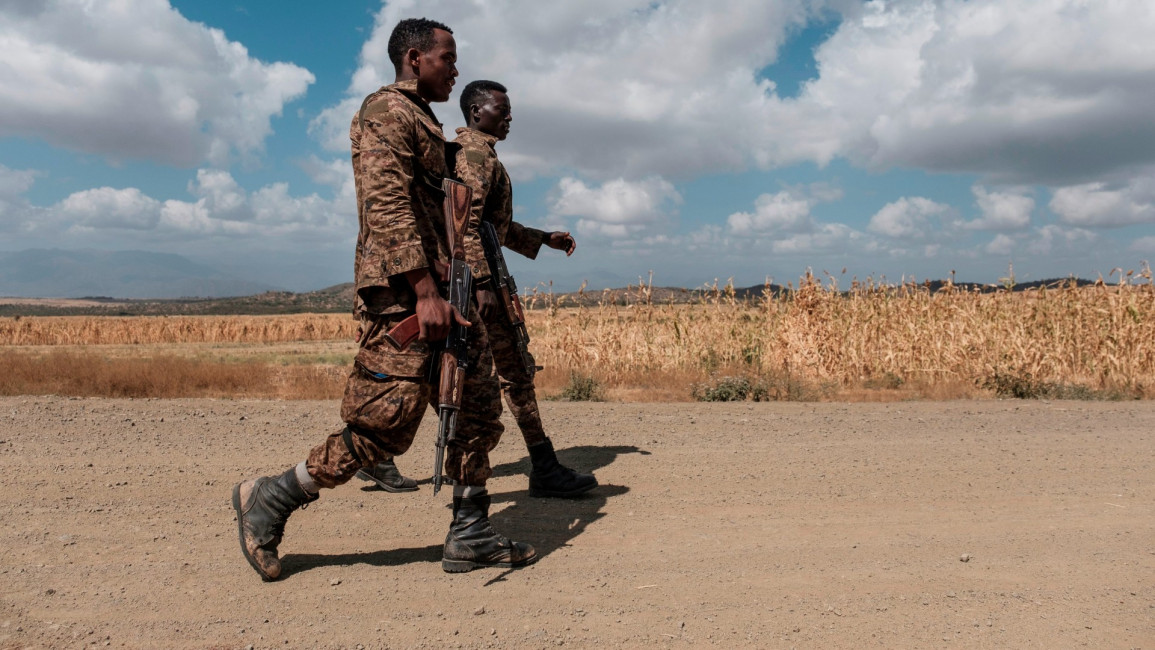UN urges Eritrean troops to leave Ethiopia's Tigray following reports of 'atrocities'
Addressing a Security Council session on Tigray, the UN under-secretary-general for humanitarian affairs, Mark Lowcock, also called for assistance to be scaled up "dramatically" to the northern region amid fears of mass hunger.
"It is now abundantly clear to all, and openly acknowledged by officials of the government administration in Tigray, that Eritrean defence forces are operating throughout Tigray," Lowcock said, according to remarks seen by AFP.
"Countless well-corroborated reports suggest their culpability for atrocities," he said.
"Eritrean defence forces must leave Ethiopia, and they must not be enabled or permitted to continue their campaign of destruction before they do so.”
Last week, Amnesty International said that Eritrean troops massacred hundreds of people in a likely crime against humanity.
The rights watchdog spoke to survivors of the atrocities and used satellite images to piece together the bloody events of last November in the ancient town of Axum in a new report.
Read also: Ethiopian Red Cross says 80 percent of Tigray cut off from aid
"The evidence is compelling and points to a chilling conclusion. Ethiopian and Eritrean troops carried out multiple war crimes in their offensive to take control of Axum," said Deprose Muchena of Amnesty International.
"Above and beyond that, Eritrean troops went on a rampage and systematically killed hundreds of civilians in cold blood, which appears to constitute crimes against humanity.
"This atrocity ranks among the worst documented so far in this conflict."
Eritrea denied the account and, like the Addis Ababa government, denies involvement.
Tigray has been the theatre of fighting since early November 2020, when Prime Minister Abiy Ahmed announced military operations against the Tigray People's Liberation Front (TPLF), accusing them of attacking federal army camps.
He declared victory after pro-government troops took the regional capital Mekele in late November, though the TPLF vowed to fight on, and clashes have persisted in the region.
Tigray has been without internet and difficult to access since the start of the conflict, making claims and counter-claims of violence hard to confirm.
The presence of Eritrean troops in Ethiopia is widely documented but has been denied by Addis Ababa and Asmara.
Eritrea fought a brutal border war with Ethiopia in 1998-2000, back when the TPLF dominated Ethiopia's governing coalition.
Abiy won the Nobel Peace Prize in 2019 in large part for initiating a rapprochement with Eritrea, whose President Isaias Afwerki and the TPLF remain bitter enemies.
Agencies contributed to this report.
Follow us on Facebook, Twitter and Instagram to stay connected



